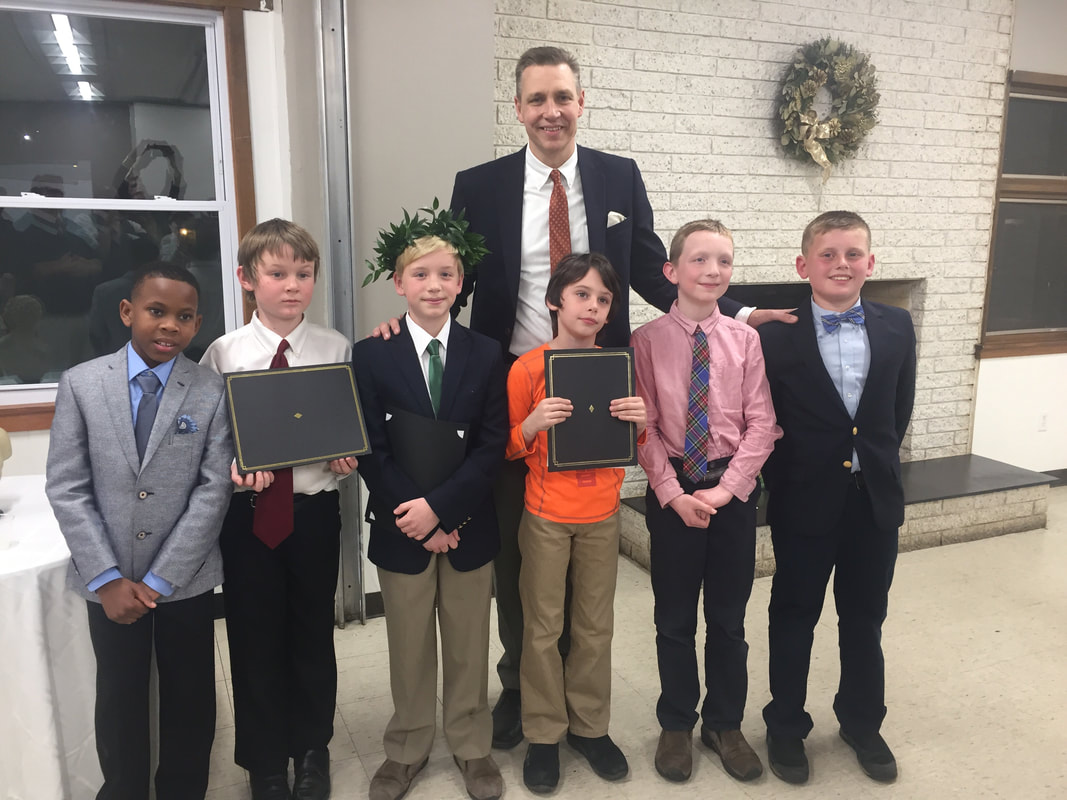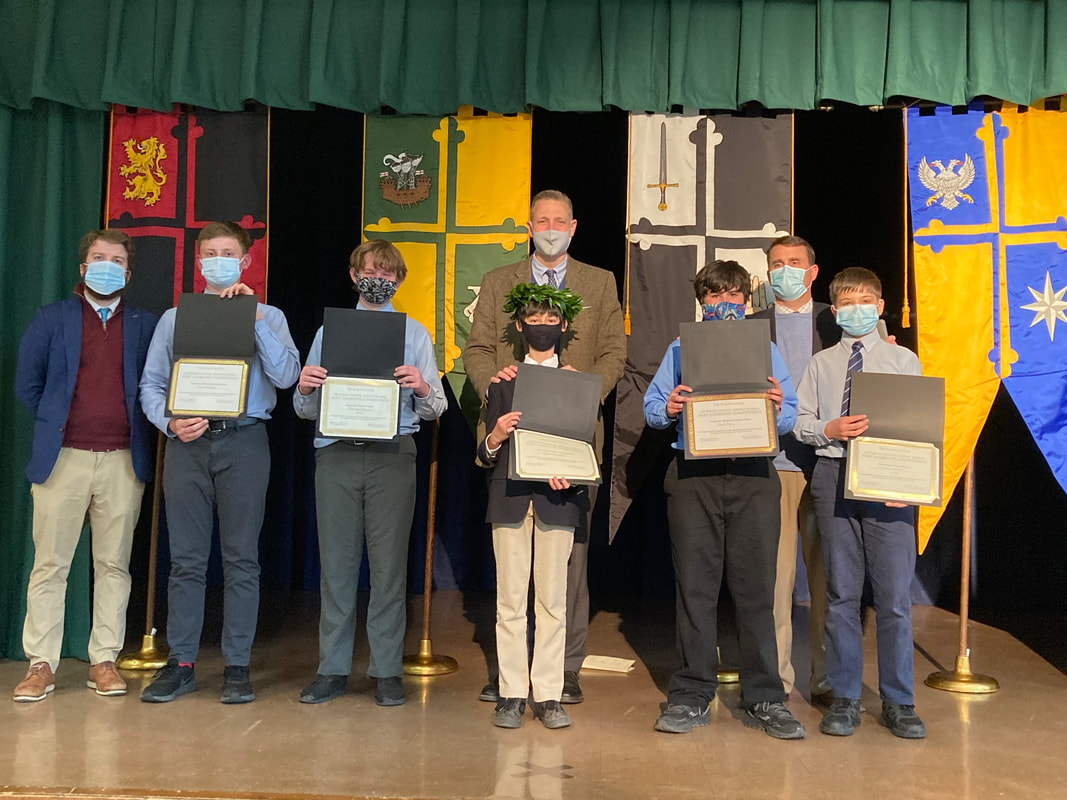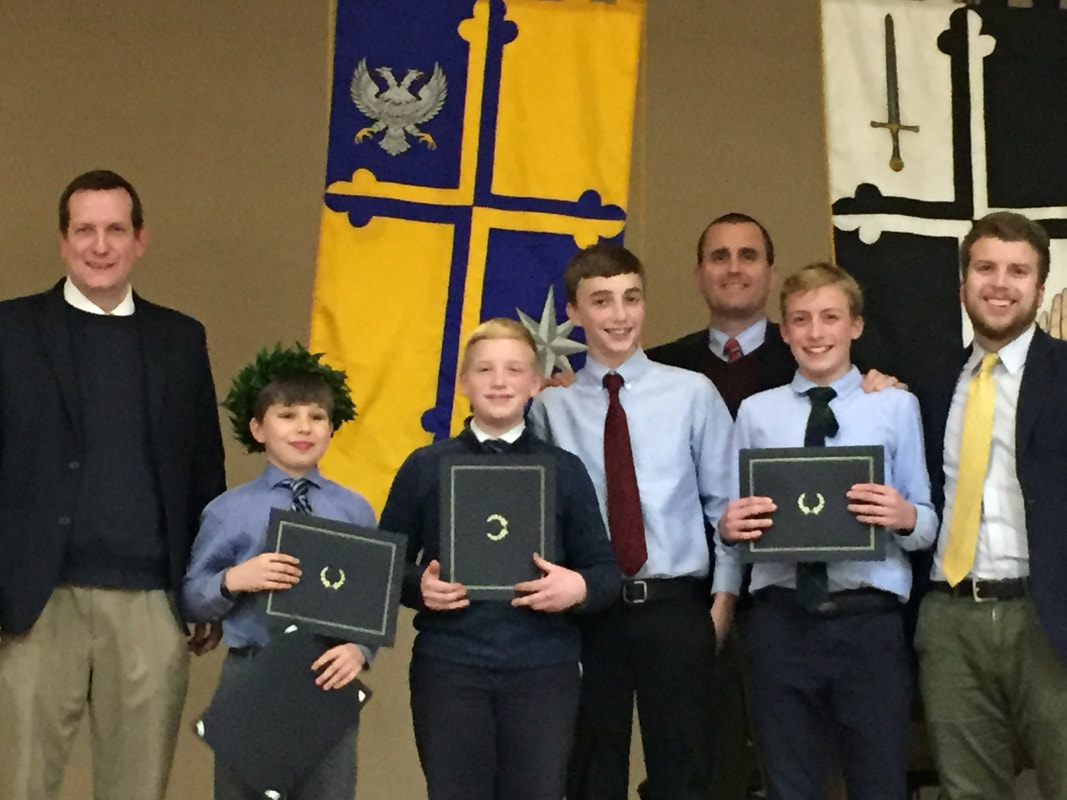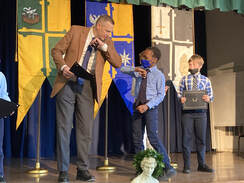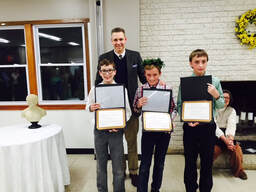POETRY
|
"Poems are powerful because they move us not only to see but to experience the world with all of our humanity. Language is the natural plaything of the very young and children delight in the rhythms and possibilities of words as they grow to be more adept in the use of their mother tongue. Even after they learn to read and write it is important for the power of the spoken word, the power of poetry, to be cultivated and broadened. What children do naturally and haltingly must be guided into the stream of their common literary heritage. The child's growing use of words and Housman's remarks point to the same ultimate goal of language: a distinctively human affirmation of creation..." (click the button to read more from McCleary's essay below)
Why Poetry? A defense from Avalon Founder Joseph McCleary, ph.D.
The English classicist A. E. Housman once said that he was always careful lest a bit of poetry wander into his mind while he was shaving in the morning: the involuntary tightening of the muscles that might accompany such a volatile mixture of words could have serious consequences during so delicate a task. Housman's point is an important one because it highlights the connection between poetry and feelings, reminding us that poems are powerful because they move us not only to see but to experience the world with all of our humanity. Language is the natural plaything of the very young and children delight in the rhythms and possibilities of words as they grow to be more adept in the use of their mother tongue. Even after they learn to read and write it is important for the power of the spoken word, the power of poetry, to be cultivated and broadened. What children do naturally and haltingly must be guided into the stream of their common literary heritage. The child's growing use of words and Housman's remarks point to the same ultimate goal of language: a distinctively human affirmation of creation. When a boy comes to The Avalon School he will find that learning poems by heart is a vital part of his studies: he learns to make the poems a part of himself. He practices reciting them aloud until he can say the words with confidence and begin to know the beauty that the words uncover. Boys in the Lower School, for example may learn "Barbara Fritchie" a poem that celebrates the courage of Marylanders during the Civil War and the noble actions of some of the Free State's invaders. Beyond the theme of the poem the boys learn to associate language with the affirmation of the world they see with their own eyes. It is easy to anticipate more than one van full of Avalon campers cresting the hill that brings I-270 to the piedmont and seeing with a burst of recognition "Up from the meadow rich with corn, Clear in the cool September morn, The clustered spires of Frederick stand, Green-walled by the hills of Maryland." Singing, the wedding of music and poetry, also takes its place in the school's course of studies. In music and literature classes the boys will sing folk songs with gusto and increasing melodic sweetness as the year progresses. These songs, rich with historical associations and the human freight of many centuries, provide an important emotional and aesthetic outlet and hand over a heritage of beauty to a new generation. One does not need to know about the Scottish chafing under England's yoke to appreciate the humanity of Loch Lomond, or feel the weight of slavery to take in the universal resonance of Go Down, Moses. The boys will learn about the historical associations eventually, but in the same way that all real learning takes place, through the context of something larger. Poetry provides this context because it is concerned with expressing something that is felt as well as known. As a work of art, a poem has no reason to exist but to be beautiful, and since it is created from the material of words its beauty will convey a kind of knowledge as well as feeling. The beauty of a poem can be austere and statuesque like Poe's To Helen or it can be the familiar and humorous of Casey at the Bat. The universe of poetry is as wide and deep as the world it occupies. The words do their magic through metaphor and through metaphor we are carried beyond the words to the existence of a world that is greater and more mysterious than we can take in. Even so, being allowed to glimpse this greatness and mystery is reason enough to know poems by heart and explains why poetry, and its offspring, song, will always have a prominent place in an Avalon education. Joseph R. McCleary, Ph.D. Past Provost In the spring each year, Avalon holds a poetry contest, the Poet Laureate Contest, for the lower and middle schools. Students are asked to memorize and recite a poem to a crowd of listeners. The student who delivers the best recitation becomes the year's poet laureate.
|


